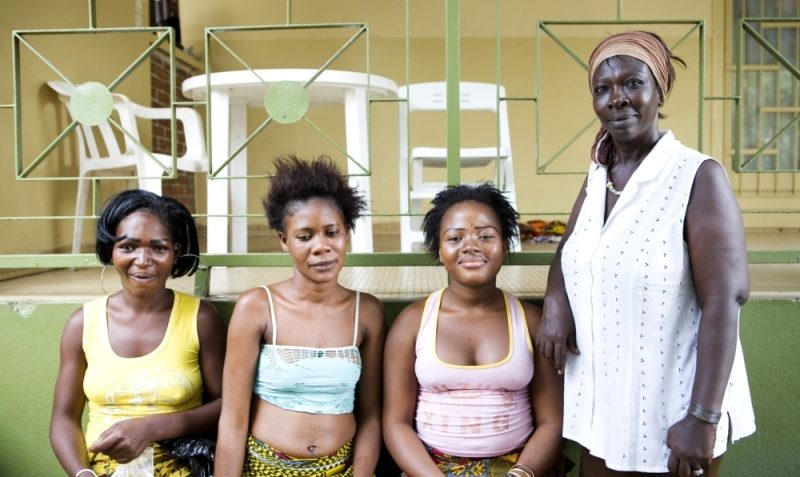What African sex workers want
 © Nell Freeman for Frontline AIDS
© Nell Freeman for Frontline AIDS
Denis Nzioka from ASWA explains what African sex workers want in order to live a life of dignity, safety, good health and freedom.
Denis Nzioka is Programmes Manager at the African Sex Workers Alliance (ASWA).
There are many angles from which to look at sex work. There are ethical angles, religious views and a million personal opinions. What we must all acknowledge, however, is that sex work has borne the brunt of a highly stigmatizing society, in which sexual conservativeness has made people look in aghast at those who voluntarily and consensually engage in sex work for money, pleasure or other mutual benefits.
A basic activist definition of sex work is “the offering of sex, or other sexual services, in exchange for money, gifts, or other sexual services”.
I will not delve into the historical lineage of sex work in Africa or map the many ways in which society has tried to regulate, punish, rehabilitate, and even kill off the sex work profession. I will simply explain what African sex workers themselves want in order to live a life of dignity, safety, good health and freedom.
I identify as a sex worker rights activist, and I represent a regional network called the African Sex Workers Alliance (ASWA). ASWA advocates for the recognition of sex work and protection of sex workers’ human rights, including the right to freedom from discrimination based on their sexual choices and their work.
We represent the diverse community of sex workers living and working in Africa, including male, female and transgender sex workers, those living with HIV, those who are differently abled, those who use drugs, and those who are refugees or migrants.
Our values
At the heart of this African sex work movement are three fundamental values that are critical to our work of representing this diverse community of sex workers.
Firstly, acceptance of sex work as a work. This means recognition of sex work as a legitimate form of earning money and other benefits accrued from it. As such, sex workers are entitled to fair pay for their work, freedom to make meaningful financial decisions with their work, and benefits such as health insurance and access to banking facilities.
Secondly, we oppose all forms of criminalisation and other legal oppression of sex work, including of sex workers, clients, third parties (managers, brothel keepers, receptionists, maids, drivers, landlords, hotels that rent rooms to sex workers, and anyone else who is seen as facilitating sex work), families, partners and friends.
We oppose all forms of criminalisation and other legal oppression of sex work, including of sex workers, clients, third parties, families, partners and friends.
Here, I draw your attention to the difference between legalisation and decriminalization of sex work. Under legalisation, sex work is controlled by government authorities, and is legal only under certain specified conditions such as mandatory registration, HIV and STIs testing, or taxation. Decriminalization, however, essentially involves the removal of all laws against any form of sex work and laws that touch on sex work. This would mean removing punitive offences such as vagrancy, being drunk and disorderly, loitering with the intent to commit a crime, and solicitation, which are often used as grounds to arrest, prosecute and harass sex workers.
Save us from our saviours!
Sex work is diverse. Sex workers are diverse. Therefore, our third value is the self-organisation and self-determination of sex workers. I take issue with the many ‘saviours’ that have tried to rehabilitate or offer alternative means of income to sex workers, often with no tangible results. These ‘saviours’ ignore the fact that sex workers don’t need cash handouts or sawing machines, or even faith conversions. What they need is safer working conditions, protection from violence and arrest, freedom from stigma, and enjoyment of their human rights.
A version of this article was first published in The Star, Kenya (www.the-star.co.ke) on 6 Febraury 2017.
This article was written as the International HIV/AIDS Alliance, before we changed our name to Frontline AIDS.
Tags
Human rights


